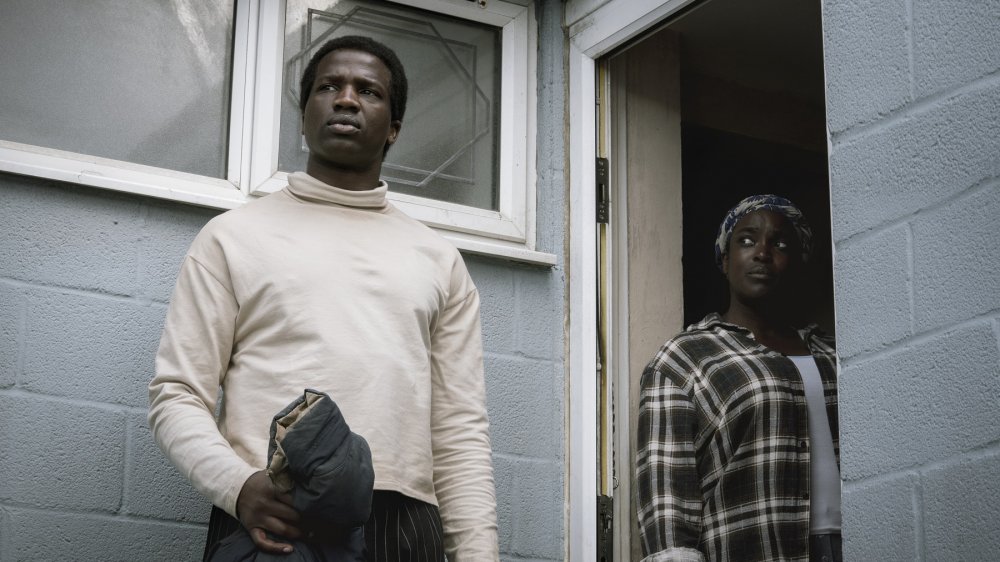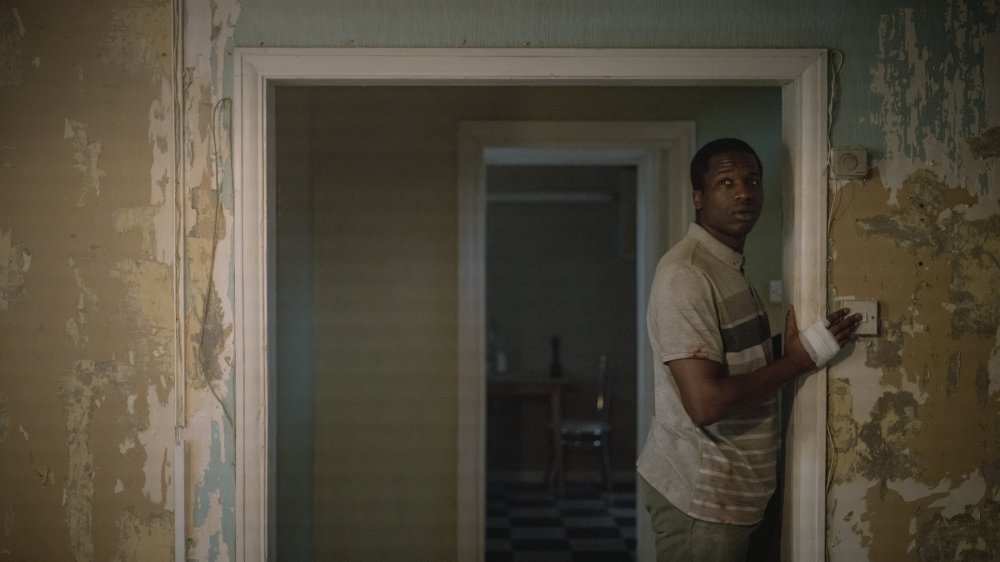How Ṣọpẹ Dìrísù And Wunmi Mosaku Were Changed By Filming Netflix's His House
Remi Weekes' horror movie His House is equally terrifying in its portrayal of the ways humans treat one another as it is for the shriek-inspiring supernatural occurrences that play out on screen. Ṣọpẹ Dìrísù and Wunmi Mosaku star as Bol and Rial Majur, a couple who end up in England after fleeing their home in Sudan. Though both of the actors were aware of the real-life refugee crisis prior to filming, bringing these characters to life greatly impacted both of them, as they explained during a virtual roundtable discussion that Looper attended.
"It made me realize that until that point, I, as someone who would say they're liberal and someone who would say that no person is illegal, I was still thinking about the numbers of refugees and asylum seekers in the U.K. with a broad umbrella," Mosaku tells Looper. "I needed to hear that as much as I thought I was empathizing or had empathy, I actually didn't."
Being in His House gave her a "story, person, and trauma to hone in on," offering her a different perspective — an unforgettable one. "It made me remember that people are living with their traumas; they are haunted by everything they've been through."
Already aware, diving into the making of the movie brought the details to the fore. "As much as I knew it in my head, in one respect," she explains, "I was really hit by it when I read the script." This reality of the refugee crisis is one Mosaku knows everyone needs to be thinking about. "It is important to remember that in 2019 there were 79.5 million forcibly displaced people in the world... That's a huge number and this movie gives one story to focus on to remember there are that many people walking around haunted in a new country."
How His House made Ṣọpẹ Dìrísù grateful for his upbringing
Immersion in the making of His House cranked up the spotlight on these atrocities for Dìrísù, too. "I thought I knew what this was," he says. "I thought I understood that life is hard in places and people make decisions. I'll tell you, though, we were in the water tank on set at the studio and I got in the boat, which was fine as I'm comfortable with water. At that point it's all good and fun. Then, they started loading the supporting artists playing the children into the boat and watching that happen, feeling how unsteady the boat was in this controlled environment was really affecting. Thinking about it now, it is making me sad."
Like Mosaku, he awareness of what these refugees go through — from leaving one life in search of another, and the complete intensity of both — was heightened during this experience. "People wouldn't do this if they had any other choice. I thought I knew what that meant but I didn't really know what it meant until I saw it happening. This is all make believe, where we have the comfort of talking about this as an anecdote, as a film we're making. There are hundreds of people, though, who have made it that are talking about it as a real-life experience and there are even more who never made it and will never get to speak about their experience. Making this film reminded me how lucky I am to have been born to the parents to have grown up in England, and to have the privilege of doing a job that I love doing. I definitely learned that making this film."

